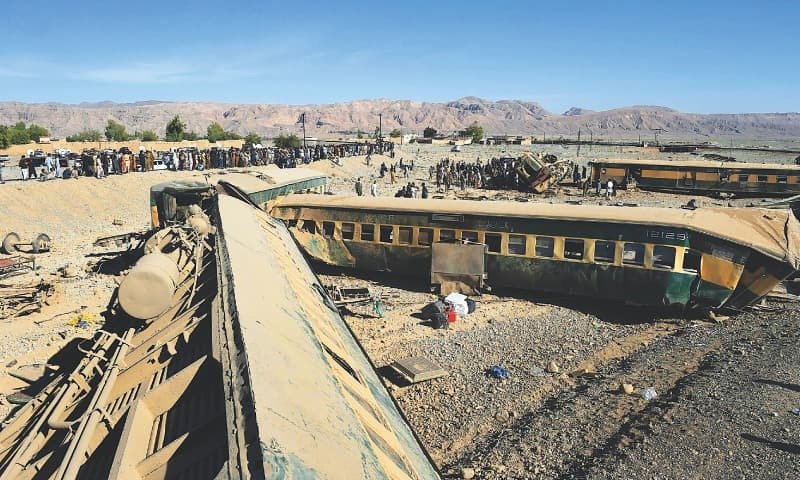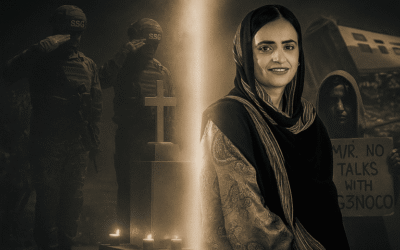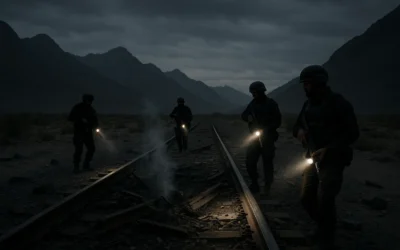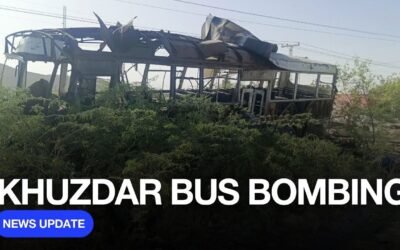The hijacking of the Jaffar Express in March 2025 wasn’t just a horrifying moment for more than 400 passengers—it was a blunt warning that the conflict in Balochistan is intensifying, and Pakistan’s current strategy is failing to contain it.
This bold and bloody operation, carried out by the Balochistan Liberation Army (BLA), disrupted a key railway line in the heart of Balochistan and forced the world to look again at a long-ignored insurgency.
The Attack That Shocked the Nation
It started on March 11 when the Jaffar Express—traveling from Quetta to Peshawar—was derailed by a blast in the remote Bolan Pass. The explosion halted the train in a dead zone with no mobile or internet coverage. Then came the gunfire.
Militants stormed the train, capturing over 400 passengers. The BLA quickly claimed responsibility, demanding the release of Baloch political prisoners within 48 hours. They threatened to execute hostages if their demands were not met.
Passengers described terrifying scenes of panic and violence. Survivors recounted how militants separated civilians by ethnicity, released women and children, and allegedly executed others—both military personnel and civilians—based on orders they were receiving via radio.
Eyewitness Accounts: “They Killed in Front of Our Eyes”
Mehboob Hussain, a survivor, said the militants picked people from the group and executed them on the spot.
“When someone is killed in front of your eyes, you don’t know what to do,” he said.
A railway police officer told reporters that a group of six security personnel tried to resist but quickly ran out of ammunition.
“We fired back until the bullets were gone… then we were helpless,” the officer said.
According to reports, the BLA used the high ground to control the area and kept the train under siege for more than 30 hours.
Pakistan’s Response: Victory or Damage Control?
On March 12, the Pakistan Army launched a clearance operation. The Inter-Services Public Relations (ISPR) announced the rescue of 300 hostages, the killing of all 33 militants, and the deaths of 21 civilians and 4 military personnel.
But this official version is being questioned.
- Unconfirmed reports suggest the military suffered far more losses.
- The BLA claimed it executed 50 hostages after Pakistan refused to negotiate.
- Eyewitnesses spoke of continuous gunfire, mass panic, and a chaotic rescue effort.
- Some passengers reportedly escaped only when Frontier Corps (FC) forces distracted the militants long enough for hostages to flee into the hills.
A BBC report noted the presence of dozens of coffins at Quetta Railway Station—raising further questions about the actual death toll.
The BLA’s Version: “We Still Control the Area”
In a counter-statement, the BLA dismissed Pakistan’s victory claims as propaganda.
“The battle continues on multiple fronts. We are still in control,” a BLA spokesperson said, challenging the government to allow independent observers into the area.
The BLA stated that its fighters released civilians out of principle, not due to military pressure. They also claimed that Pakistani forces left behind their own soldiers instead of negotiating for their release.
What Fuels This Conflict?
Balochistan is Pakistan’s largest yet most impoverished province, rich in natural resources but plagued by neglect and military control. For decades, the Baloch population has accused the central government of:
- Political marginalization
- Enforced disappearances
- Economic exploitation (especially under the China-Pakistan Economic Corridor)
- Human rights abuses
These issues have fueled the insurgency. Groups like the BLA have evolved from small guerrilla units into well-armed militant forces capable of carrying out high-profile operations like this one.
A Pattern of Escalation
This isn’t the first time the BLA has used hostages to push for a political exchange. In 2022, they captured Pakistani Army Colonel Laeq Naik and offered a prisoner swap. The state refused, resulting in his execution.
Major attacks in recent years include:
- The 2019 attack on the Pearl Continental Hotel in Gwadar
- The 2020 Karachi Stock Exchange assault
- The 2022 Karachi University suicide bombing
- The 2024 Operation Dara-e-Bolan, where BLA fighters temporarily controlled strategic military supply routes
Each time, the Pakistani military responded with force. But the pattern is clear: the conflict is not dying down—it’s expanding.
Blame Games and Denial
Pakistan continues to label the Baloch insurgency as “foreign-sponsored terrorism,” often blaming India or Afghanistan. After the Jaffar Express incident, the military claimed the operation was orchestrated from Afghan soil—a narrative often repeated to externalize the problem.
But this approach ignores the core issue: Balochistan’s conflict is rooted in real, internal grievances.
What Happens Next?
While the military celebrates a “rescue mission,” the region remains tense, and the full toll of the incident is still unclear. Survivors are still being located. Some militants may have fled with additional hostages. And families across the region are burying their dead.
As Balochistan’s former chief minister Akhtar Mengal recently stated:
“There is not a single inch of Balochistan left where the government can claim authority.”
That chilling statement reflects a growing truth: Pakistan is losing control of Balochistan—not because of foreign plots, but because of decades of failed policies.
Final Thoughts: A Crisis Demanding International Attention
The Jaffar Express hijacking isn’t just a tragic event. It’s a symbol of a deeper crisis—one that continues to be ignored by both the Pakistani state and the international community.
If the world continues to turn away, the next attack will be even more devastating.
The people of Balochistan don’t need more military operations. They need recognition, rights, and a political solution that acknowledges their pain and offers hope.




